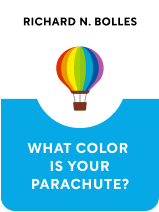

This article is an excerpt from the Shortform book guide to "What Color Is Your Parachute?" by Richard N. Bolles. Shortform has the world's best summaries and analyses of books you should be reading.
Like this article? Sign up for a free trial here .
What is a career coach? Is a job search coach right for you?
If you’ve been at the job hunt for some time, it might be time to hire a job search coach. But what is a career coach and what do they do?
Keep reading to find out more about the services of a career or job search coach.
Consider a Job Search Coach
There are no job-hunting techniques that work 100% of the time. If you’re not getting job offers, it may not be because you’re doing something wrong. Sometimes, employers will have already decided on a candidate but have to go through the hiring process because the government or company insists that the position be advertised everywhere. In a situation like this, you’re not being turned down because you did something wrong; you’re simply caught up in an employer’s game.
It is possible, though, that there’s something more than sham interviews going on. If you’ve been job-hunting unsuccessfully for a long time, it’s time to consider: overcoming specific hurdles, hiring a job search coach (also known as a career coach), or catering to the job market.
Help From a Coach
If you’ve followed all the above advice and you still haven’t found a job, you might want to consider getting some additional help from a job search coach.
What is a career coach? There are three kinds of career coaches:
- Good people who are good at their jobs.
- Good people who are bad at their jobs.
- Bad people who are trying to scam you. These bad counselors tend to be involved with executive counseling firms rather than working on their own.
You can fairly easily avoid firms, but it’s more difficult to figure out who’s good and who’s bad at their job. Good and bad are also relative—the job search coach who’s best for you isn’t necessarily the job search coach who’s best for your friend. Therefore, you’re the only person who can decide which coach is the most compatible with you. The author never recommends specific people and the list of coaches on his website should be treated as a reference, like the Yellow Pages, rather than as an endorsement of specific coaches.
There are three steps to finding your ideal job search coach:
1. Track down three coaches. If you want to meet face-to-face, restrict the search to your geographical area; if you prefer phone or video counseling, you can consider anyone anywhere in the world. (But keep in mind you may not have a coach’s full attention if you’re meeting virtually, because you can’t see what else they might be multitasking on while they’re speaking with you.) To find these three coaches, use the internet and ask people you know for recommendations.
2. Set an initial appointment with three potential coaches and ask about the fee for the first appointment. Scammy firms nearly always offer the first appointment free so they can draw you in, but some individual counselors also offer a free initial consultation so that there’s no pressure on either of you to keep working together if you don’t click. In your initial meeting, ask about:
- Their program. The goal of career counseling is for you to learn how to job-search yourself. If a counselor is planning to do all the work for you, that’s a bad sign.
- Their experience with counseling, in years. You want a counselor who has lots of experience—you don’t want to be a guinea pig as the counselor learns the industry. If a counselor is vague, defensive, or tries to answer by bringing up their credentials, it’s a red flag.
- Their certification and training. Keep in mind that the field of career-coaching isn’t very well regulated and some certifications only involve a weekend’s worth of training. Certification tests don’t necessarily indicate expertise, but they do indicate that a coach has been tested on their knowledge.
- Their success rate. If anyone tells you she has a 100% success rate, she’s almost certainly lying. Even the best coaches don’t usually place more than 86% of people. The success rate also depends on how hard individuals work—if a coach mentions that success depends on you, that’s a good sign. You can also ask to speak to former clients. If a coach refuses, that’s another red flag.
- Their costs. There are three methods of paying for career coaching:
- Free. You can sometimes find free career coaching through an organization such as a church or library. Typically, this is group coaching rather than one-on-sessions. Group coaching can actually be more valuable than individual coaching because you can learn from what others are doing.
- By the hour. Per hour costs range from $40-350/hour, typically around the same fees local psychologists or psychiatrists charge.
- Upfront. Beware the firm that charges you up-front—once they have your money, they’re less motivated to continue helping you. Even if a contract has language around giving you your money back if you’re not satisfied, there’s probably a loophole. Not all firms are bad—some charge upfront because this motivates you to work hard at their program to get your money’s worth. However, it’s impossible to tell why a company is charging upfront, so it’s safer to avoid any organization with an upfront payment model.
- Their contract, if they have one. If you’re paying by the hour, usually you can stop the process at any time. If there is a contract, read it carefully—a contact doesn’t guarantee a scam, but all scams use contracts.
3. Assess. If you liked one of the coaches, sign up with them. If you didn’t, for any reason, find another three and repeat the process again.

———End of Preview———
Like what you just read? Read the rest of the world's best book summary and analysis of Richard N. Bolles's "What Color Is Your Parachute?" at Shortform .
Here's what you'll find in our full What Color Is Your Parachute? summary :
- How to not just find a job, but find a job you love
- Why traditional resumes don’t find you the right job
- The 7 steps to identifying your ideal career






